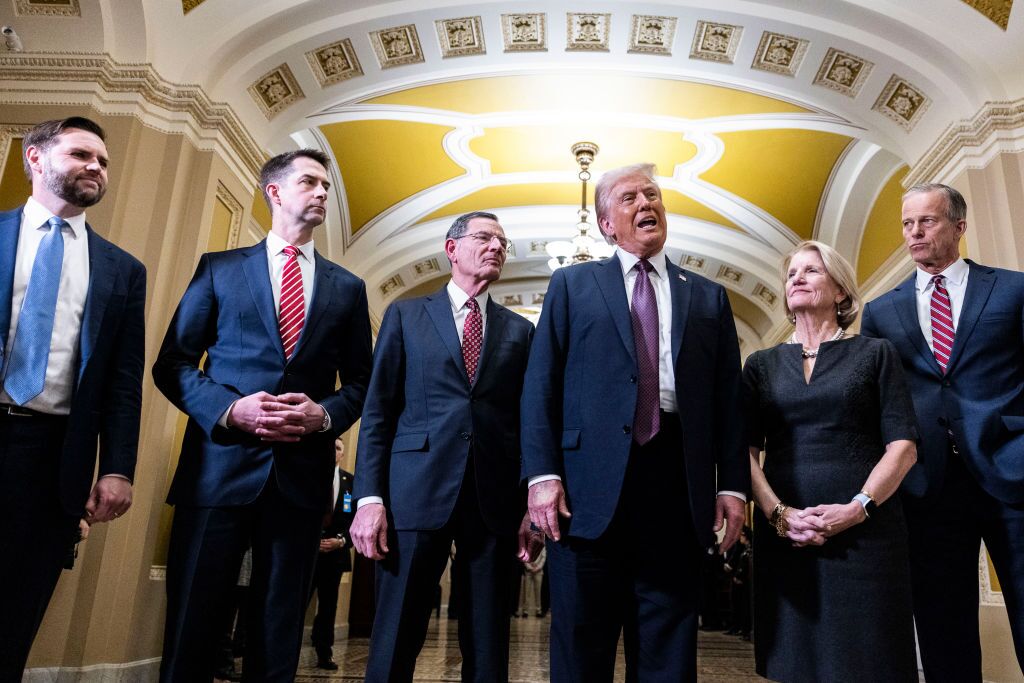Republican governors across the country are urging the Trump administration to remove federal restrictions on education funding, a move that aligns with long-standing conservative efforts to reduce federal oversight in schools.
Iowa has stepped forward as the first test case, submitting a proposal to the U.S. Department of Education earlier this month to consolidate multiple federal education grants into a single block grant with minimal restrictions. The move reflects a growing push among GOP-led states to take greater control of how federal education funds are allocated.
Oklahoma’s education department has indicated it is “actively investigating a comprehensive block grant solution,” while Florida Governor Ron DeSantis recently wrote an opinion piece advocating for the approach. Conservatives view the effort as a key step in fulfilling President Donald Trump’s broader goal of dismantling the Education Department and shifting decision-making power to state governments.
“All states would like more flexibility and freedom,” said Jim Blew, a former Education Department official under Trump who now co-leads the Defense of Freedom Institute for Policy Studies. “This would be a full block grant, no strings attached.”
A Shift in Federal Education Funding
Currently, federal education funding is divided into multiple grants targeting specific student needs. The largest, Title I, directs additional funding to schools serving high-poverty communities. Other grants support teacher training, rural education, and English language learners.
For years, Republicans have pushed for block grants as a way to streamline funding, arguing that it would reduce bureaucratic red tape and allow states to direct funds where they are needed most.
Opponents, however, warn that block grants could lead to funding cuts for vulnerable student groups, including low-income students and English learners. “Congress created each of those individual grants for specific reasons to serve specific groups of students,” said Ivy Smith Morgan of EdTrust, an organization advocating for education equity. “Over time, block grants reduce the connection between funding and the students it was meant to support.”
Iowa’s Proposal and the Legal Debate
In its March 7 proposal, Iowa’s education agency requested permission to merge ten federal funding streams into a single, locally managed grant, arguing that the current system leads to “fragmented local investments.” The proposal also includes Title I, which provides Iowa schools with over $100 million annually.
Iowa’s request asks the Education Department to waive certain federal requirements, a power granted to the education secretary under the Every Student Succeeds Act. Similar waivers were issued in the past, including under the Obama administration and during the COVID-19 pandemic. However, this is the first known request to consolidate aid into block grants, a move likely to face legal challenges.
“This is politically unfeasible—Congress is not going to move here,” Morgan said.
During Trump’s first term, former Education Secretary Betsy DeVos attempted a similar plan to merge K-12 funding into block grants, but it was rejected with bipartisan opposition. Now, with a second Trump administration in place, Project 2025—a conservative blueprint for his policies—calls for phasing out Title I funding entirely over the next decade.
A Growing Republican Movement
Iowa is not alone in pushing for this shift. Republican lawmakers in Kansas recently passed a resolution urging the Trump administration to allow block grants, while Ohio is considering similar measures.
Oklahoma’s education department hinted at a major upcoming policy change, saying it is preparing for “a big announcement that will reshape how we approach education.” Meanwhile, some conservative-led states, such as Idaho, have stated they have no plans to pursue block grants at this time.
Education Secretary Linda McMahon has emphasized her support for reducing federal oversight. In a recent CNN interview, she stated that while block grants have been discussed, funding for students with disabilities would remain separate from Title I funds.
“No, that’s separate money that would go, because they would clearly have that responsibility to make sure that money does get to those students,” McMahon said.
Future of the Debate
Iowa Governor Kim Reynolds defended the proposal in an op-ed published in The Hill, arguing that block grants would allow states to “stretch federal dollars further” and free them from the influence of “distant federal bureaucrats.”
Jim Blew, a key proponent of the initiative, insists the approach is legally sound and has newfound political momentum under Trump. “The most common way to do that is to turn the money into a block grant,” he said, “and just give it to the states for them to deal with the money.”
With as many as a dozen GOP-led states reportedly preparing similar proposals, the push for education block grants is shaping up to be a major political and legal battle in the months ahead. If Iowa’s request is approved, a wave of challenges from opponents is almost certain to follow.



